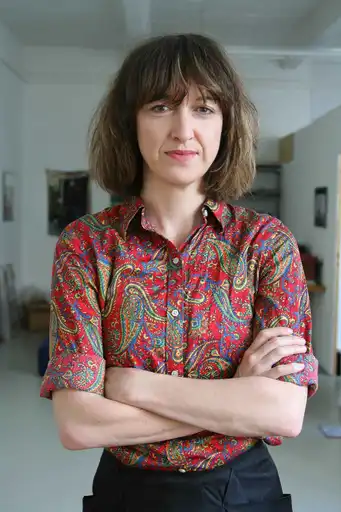output – interview
From the online publication "Fellows Published 2021-2022"
Rachel O'Reilly was one of the nine fellows in the academic year 2021-2022. The interview below is published in the online publication “Fellows Published” that was launched in November 2023.
fellowspublished.rietveldacademie.nl
fellowspublished.rietveldacademie.nl
Rachel O'Reilly is a settler Australian artist/writer/curator whose work engages questions of subjectivity, governance and planetarity, paying particular attention to language and the moving image. During the fellowship, O'Reilly has focused on a recent turn towards the oceanic in art in ways that extend critical imagination offshore.
What was the starting point of your research project?
My work on onshore unconventional energy has moved to include littoral zone research—where land meets sea—given the necessity to attend to offshore imaginaries and the interaction of land and sea not just in actual weather systems but also in key innovations of capitalist legal and policy history. My earlier animation work on the Torrens title system—in which Australian property law based land on a model of shipped property coming out of the instruments of slavery—was part of that.
What approach did you take for the fellowship research project, and how does it relate to the role of research in your practice?
I always conduct interviews, both formal and informal, wherever I go. I return to places that seem familiar and try to disimagine how I think I know them to get to other research. That has contributed. But it has also been crucial to locate the archive of the campaign to save the Great Barrier Reef from oil drilling in the 1960s and 1970s. This successful campaign was unprecedented in world history and involved a broad-based attempt with international expertise. The role of artists, amateur conservationists, and an unprecedented trade union black ban were key to the success of a movement that managed to protect the entire reef system from oil drilling applications in perpetuity. It was also a significant disciplinary power struggle of biology, and the emerging field of ecology, against the funded Goliath of geology. Given the current scale of speculative investment in unconventional fossil fuels, it is important to think also about how much of what could happen doesn’t happen and how tenuous these finance imaginaries are. Such archives illuminate so much contingency and so much exemplary labor.
Your research is very wide and touches on many urgent topics, among which you are interested in how contemporary western art education continues the extractivist practices instituted during the so-called Enlightenment and how these practices clash with cl
Partly, I do this out of a necessity to explain Southern contexts to Europeans and show the continuing material impact of their thought and industrial practices on faraway places, partly to keep thinking geopolitics comparatively, but also for an Australian audience on an island in which the violence of settler capitalism as history is consistently thinned and erased. Any state or corporate formation is part of the world history of capitalism, and the role of Enlightenment law in coding capital’s movement continues to play out today. You need to only look at legislation for biodiversity, protected species, water management, etc., to note how the human and the non-human or the cultural and the natural continue to be split up into separate terrains in ways that distort material thinking about what occurs and what is to be done.
project
Fellows 21/22
Fellows 21/22
